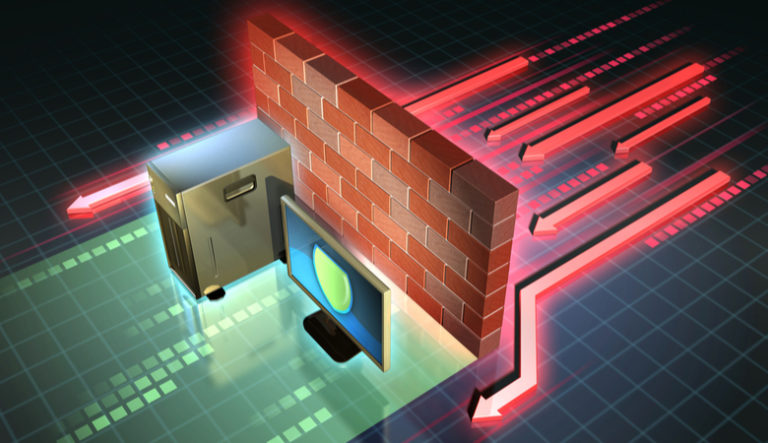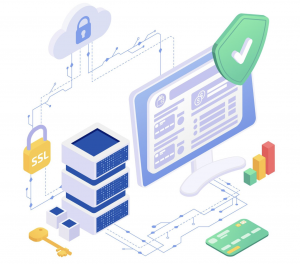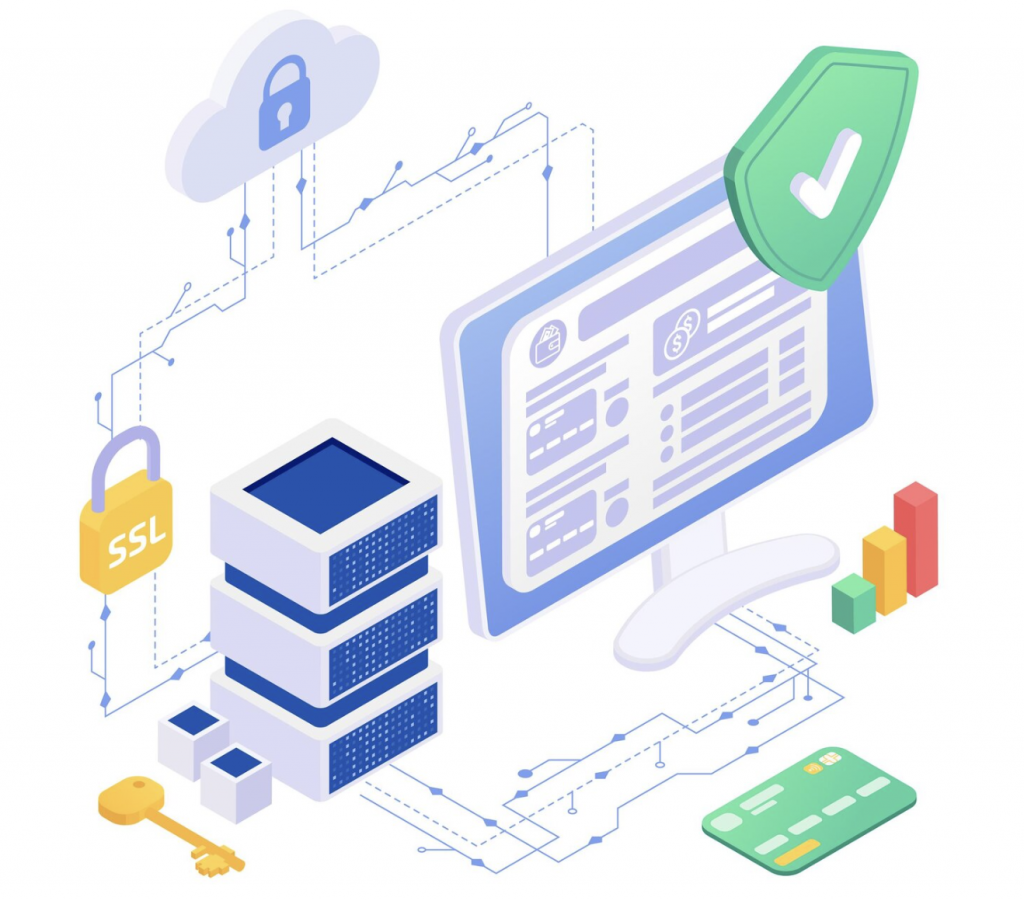Firewalls were first created in the late 1980s to respond to growing computing mechanisms and resultant virus attacks on computers and electronic devices. In the 1990s, the first generation of firewalls was officially introduced which followed the packet filtering firewall mechanism followed by Stateful firewall mechanisms, the second-generation firewalls.
With them, firewall technology became more sophisticated with more networking protocols and protection layers added. While preliminary firewalls monitor incoming and outgoing traffic on the server, advanced new-generation firewalls block digital threats and malware.
If you want to know more about firewalls and what does a firewall do, you are at the right place. The comprehensively curated article will cover everything you need to know about firewalls and their operational mechanisms.
What is Firewall?
The working mechanism firewall is rooted in the ancient method of making high fort walls to stop intruders. European castles and one of the seven wonders of the world, the Great Wall of China are some of the most prominent examples of it.
Similarly, firewalls in computational terms can be understood as a network of security systems that monitors and control incoming and outgoing traffic of a server. This gatekeeping mechanism is important to safeguard the networks and servers from unauthorized access and cyber threats.
Types of Firewall
There are four main types of firewalls, each designed to cater to specific network and server requirements:
1. Packet Filtering Firewall
Packet filtering firewalls are the most preliminary form of firewalls monitoring incoming and outgoing traffic based on IP addresses, ports, and protocols.
2. Statefull Inspection Firewalls
A firewall like this allows or prohibits network communication according to protocol, port, and state. In stateful firewalls, the administrator-defined rules and context are used to determine the filtering.
3. Proxy Firewalls
Proxy firewall filters communications at the application layer, safeguarding the network. A proxy firewall acts as a gateway between two networks for a particular application or server.
4. Next Generation Firewalls
Beyond port/protocol inspection and blocking, the next-generation firewall is a deep-packet inspection firewall that also includes intrusion prevention, application-level inspection, and information from outside the firewall network access.
How Does a Firewall Work?
A firewall works on the basis of predefined rules which to monitor incoming and outgoing traffic and deny entry to unauthorized visitors.
However, it is important to note that firewall should not be confused with antivirus. Firewall focuses on controlling and monitoring threats at a server level, antivirus only eliminates threats on a device level.
Apart from traffic monitoring, firewalls also do decision making by decided whether to permit an entry packet to continue its journey to its destination within the firewalls servers to block it from entering the server.
Additionally, also maintain logs of authorized and banned traffic. This help security teams and administrators a great deal in determining required security measures and optimzing firewalls functionality.
Advantages of Using a Firewall
The digital landscape is evolving at a rapid pace because of which cyber attacks and data breaches are becoming more complex. Consequently, it is important to utilize firewalls for protecting information and maintaining network integrity. Mentioned below are some more advantages of using firewall:
1. Filtering Network Traffic
As mentioned above, firewalls play a big role in inspecting the incoming and outgoing traffic flow. They act as a initial protective layer by denying entry to harmful data and patterns, making the internal network secure. Therefore it is safe to say that a firewall primary objective is to monitor all data packets that traverse a network.
2. Preventing Virus Infiltration
Viruses are continually changing and advancing in characteristics because of which advanced defenses are needed. Firewalls and antivirus software work together to provide a strong defense against these threats, which include malicious software of all kinds.
3. Providing Data Privacy
Almost all businesses nowadays, big or small, function in the digital realm and store sensitive information on servers. By comprehensively monitoring every packet and piece of data which enters the network, firewalls ensure that data and private information remains confidential.
Additionally, firewalls provide protection against external threats to data through security rules and access control methods, enabling businesses to operate in a securely and effectively in digital environments.
4. Meeting Regulatory Compliances
For a lot businesses operating in regulated industries, it is important to implement robust security measure for data protection. Non-adherence and non-compliance can lead to legal troubles.
Therefore by protecting data integrity and providing access logs, firewalls assist organizations in maintaining compliance and gaining continued trust of their customers and other stakeholders involved.
5. Automated Threat Intelligence Sharing
For startups and smaller businesses, handling high volume of secruity threats can be overwhelming. Advanced versions of firewalls can easily automate the process of of threat detection, analysis, and response, pooling insights from a global community and ensuring swift security updates.
Challenges of Firewall
While there are many benefits of implementing firewall protection to secure data and sensitive information, there are some challenges of firewall also which should be considered. Some of the common challenges of firewall are:
- Technical expertise required to set up firewalls and optimize functionalities
- Continuous updation required to respond to evolving digital threats
- Single point of failure of firewalls can expose the network to vulnerabilities and security threats
- Intensive traffic inspecitve can introduce latency in firewall and impact performance
Conclusion
Despite the challenges of firewall, it remains an useful protective measure to protect your network from security breaches and cyber attackes. With the right support and resources, the challenges can be easily addressed.
If you need help with the same, you can reach out to us at Digital Pacific. We can help you learn all about firewalls along with securing your servers with the best security measures.
Contact us today to know more about us and get started!








